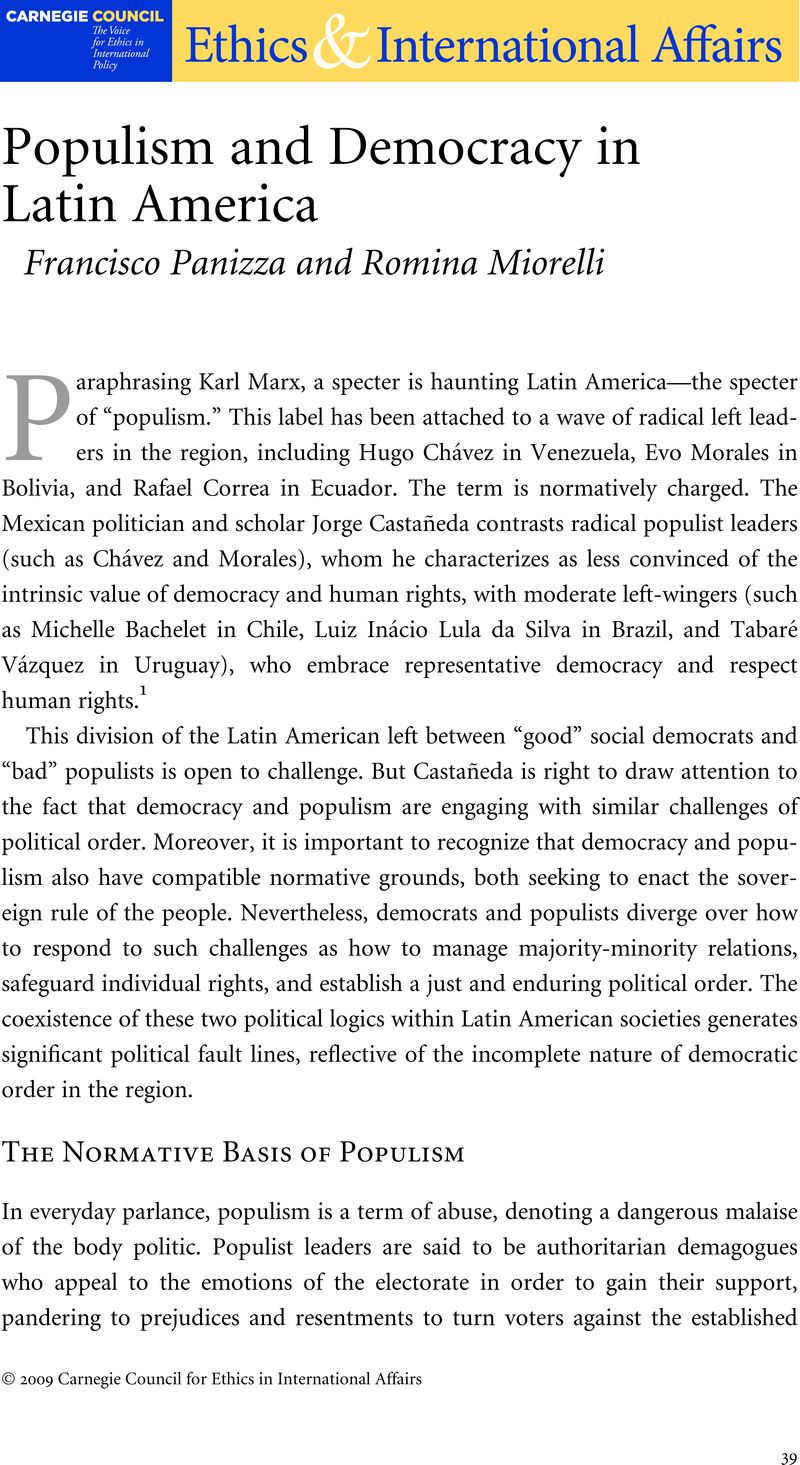Published online by Cambridge University Press: 25 March 2011

1 Jorge Castañeda, “Is Evo Morales an Indigenous Che?” New Perspectives Quarterly 23, no. 2 (2006), p. 59.
2 Margaret Canovan, “Trust the People! Populism and the Two Faces of Democracy,” Political Studies 47, no. 1 (1999), p. 7.
3 Michael Kazin, The Populist Persuasion: An American History, rev. ed. (Ithaca, N.Y.: Cornell University Press, 1998).
4 Michael Ignatieff, “Human Rights as Politics,” in Michael Ignatieff, Human Rights as Politics and Idolatry, ed. Amy Gutmann (Princeton, N.J.: Princeton University Press, 2000), p. 30.
5 Sven Harten, “Imagining the People” (unpublished manuscript, 2007).
6 Ernesto Laclau, On Populist Reason (London: Verso, 2005), p. 99.
7 Benjamín Arditi, “Populism as a Spectre of Democracy: A Response to Canovan,” Political Studies 52, no. 1 (2004), p. 143. As Koen Abts and Stefan Rummens put it: “This means that the citizens, as a political community, constitute a homogeneous political body with a singular will, the volonté générale. Importantly, the substantial identity of all members of the political community also encompasses the identity of rulers and subjects” (emphasis added). (See Koen Abts and Stefan Rummens, “Populism versus Democracy,” Political Studies 55, no. 2 [2007], p. 415.)
8 It must be stressed that the recognition should be mutual and that the opposition has been equally guilty of denying the legitimacy of Chávez's electoral victories and of supporting the aborted military coup of April 2002.
9 See Francisco Panizza, “Introduction,” in Francisco Panizza, ed., Populism and the Mirror of Democracy (London: Verso, 2005), p. 29.